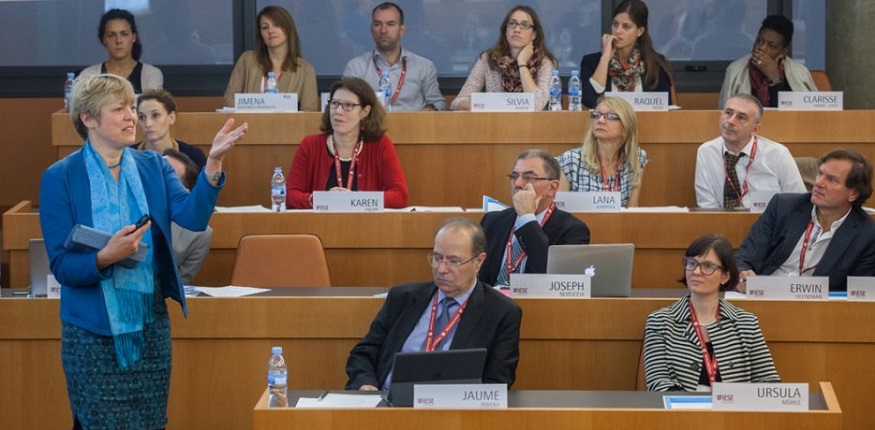Interview: WE Health project to empower women entrepreneurs

Empowering Women Entrepreneurs in Health Innovation.
WE Health: Empowering Women Entrepreneurship in Health Innovation is a new strategic project of EIT Health Campus. The project aims to enhance the participation of women in innovation and entrepreneurship activities by providing capacity building tailored to women’s needs and by inspiring and supporting them to advance in their professional careers. WE Health also aims to raise awareness of the under-representation of women among health entrepreneurs and at generating new innovative ideas towards a more balanced EIT Health Community.
In an interview about the project, one of the organisers, Magda Rosenmöller of IESE Business School (pictured above), discusses the challenges that led to the initiation of the project and explains how it will be carried out.
[tweetable alt="Women play a key role in healthcare: 70% of the medical and health services workforce" hashtag="#healthcare"]Women play a key role in healthcare, and comprise approximately70% of the medical and health services workforce[/tweetable], but only 4% of healthcare companies have women CEOs! Women’s better understanding of the caring aspects and a difference in their creative approach mean there are certainly valuable contributions they could make.
About this time last year, an EIT Health Campus Ideation Event was organised at IESE Business School in Barcelona. Helen Ward, Professor of Public Health from Imperial College, introduced the idea of Women’s Entrepreneurship, and this was taken up by an enthusiastic and motivated group of EIT Health partners who started working on ways to make it happen. One of the people most inspired by this was Klaus Diepold, a Professor from TUM, who drove the idea of “[tweetable hashtag="#EIT"]power ladies[/tweetable]”, the initial working title. The IESE, Imperial and TUM’s Women’s Entrepreneurship teams were completed by experts from Karolinska Institute and PAU education.
The important idea of this project is that women can play a crucial, different role in EIT Health Innovation projects, in Campus activities, and particularly in the Accelerator pillar, as only a few women participated in the 2016 EIT Health Accelerator call.
We plan to focus on those capacity-building aspects, such as leadership, decision making and communication, where – not despitetheir differences but because of them – women can really make an impact in driving innovation and change in healthcare, for the benefit of patients, health systems and the European economy in general.
We are building on the existing insights, evidence suggests that social and cultural norms have classified women as more suited to social/human-related, caring jobs close to home, while men’s roles are more readily associated with engineering types of industries and with risk taking, as reported in a recent OECD study.
However, the actual root cause – such as gender stereotyping in society and schools – is not the primary concern or objective of this work. We would like to support women to realise their full potential in contributing to driving innovation and change in healthcare. For that, capacity building – but also coaching and networking – will play be essential.
Women face several barriers in their entrepreneurial careers. The cultural starting point is the “double assignment” of professional work and caring for family, home and children – which often forces an either/or decision. Even successful entrepreneurial women report their difficulties in combining work and home life. Jointly looking into good examples will make a difference.
Other barriers are that women struggle to perceive themselves as entrepreneurs, and to believe that they are capable of doing that kind of work. They are less used to building up a company-internal network and connecting to senior leadership to ease their way up (intrapreneurship). Also, for entrepreneurs, access to capital can be a key obstacle; investors usually like to see a man on the team. It is striking that only 14% of the venture capital workforce are women; in this area, mentoring and coaching can be particularly helpful.
Catch up with the latest news from the EIT Community in the Newsroom.
Subscribe to the EIT Newsletter to get the best of the EIT Community's news in your inbox once each month.


 Share this page
Share this page


